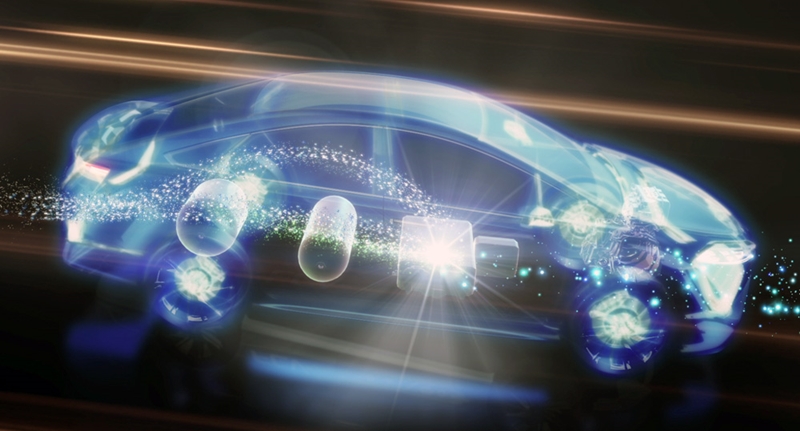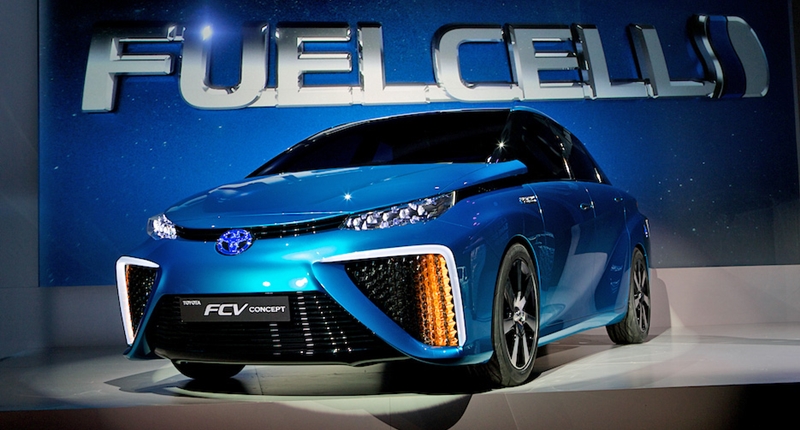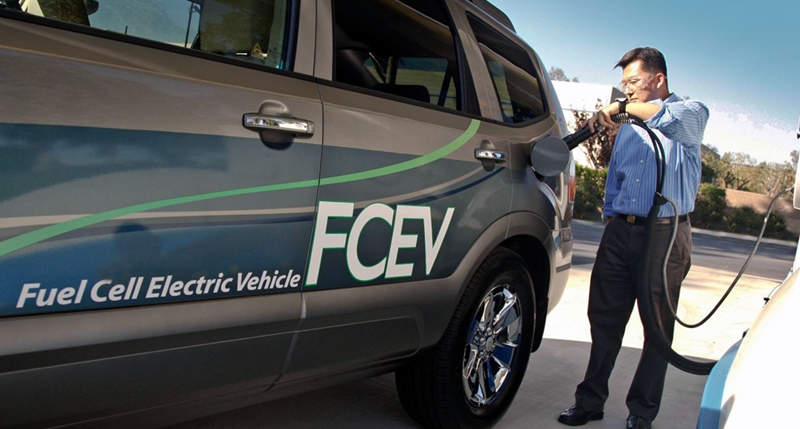Hisense is making a deliberate play for South Africa’s growing gaming and hybrid-work audience with the launch of its latest monitor lineup, led by…
7 things still standing in the way of hydrogen fuel cell cars

You’ll be grey and wrinkled the day you have the option to walk into a car dealership and buy a hydrogen fuel cell vehicle, right?
Wrong. Well, unless you’re pretty much already grey and wrinkled (in which case, we apologise for bringing it up at all). Yes, a handful of major manufacturers are planning full-scale market launches of hydrogen fuel cell vehicles (FCVs) as early as 2015 – with one even aiming to start its roll-out in selected countries this year.
What exactly is a hydrogen fuel cell car? Exactly as the name suggests: a car that uses fuel cells to convert hydrogen into electricity (by reacting it with oxygen from the atmosphere), which it then employs to power the wheels. And, rather importantly, it emits nothing more harmful than a little heat and water in the process.
Of course, that very fact – that tailpipe emissions are non-existent – is probably the hydrogen fuel cell car’s most celebrated plus-point. Then, naturally, there’s the general energy diversification and reduction in oil dependency. But it also boasts distinct advantages over conventional electric vehicles (strictly speaking, a hydrogen fuel cell car is an electric vehicle… it just generates its electricity on-board), including a praiseworthy cruising range and quick refuelling process (as opposed to lengthy charges).
Hydrogen itself — the very first entry on the periodic table — is the most abundant element in the universe, so it makes oodles of sense as a fuel source. But harvesting its potential isn’t exactly simple, and bespectacled boffins have been battling with this conundrum for decades. Even today, there are a number of obstacles still standing belligerently in the fuel cell car’s path. But that’s not stopping Toyota (which started work on its FCV as long ago as 1992), Honda, Mercedes-Benz, General Motors, Hyundai and others from pushing on – even if in only small numbers in certain markets at first.

But in the meantime, here are the seven biggest issues the hydrogen fuel cell car will have to overcome in order to successfully “go mainstreamâ€.
1. Cost
Ah, yes. Money. Always top of the list, it seems. Currently — even after extensive advances in the relevant technology — hydrogen fuel cells are exceedingly expensive to produce. Why? Well, partly because fuel cells make use of platinum (although manufacturers are starting to reduce their dependency of this costly precious metal) and partly due to economies of scale. Until FCVs are produced on a mass scale, they’re going to be pricey — more so than orthodox electric vehicles or hybrids — which means early adopters will be forced to pay a premium. And nobody wants to pay a premium.
2. Infrastructure

Of course, related to cost is infrastructure. Since fuel cell vehicles can’t simply be charged at home like conventional electric cars, they will only become a truly viable alternative for the masses when there are enough hydrogen filling stations in a given area. Naturally, building a network for the safe and efficient distribution of hydrogen is a huge investment – for automakers and governments alike. But nobody will buy until the infrastructure is in place, and that infrastructure won’t be built on a large enough scale until there is some sort of guarantee on significant sales.
3. Extraction
Hydrogen may be abundant, but unfortunately not in the form required by FCVs. In fact, it doesn’t exist freely in nature in decent quantities, but rather requires massive doses of energy to extract or produce. Where does this energy come from? You guessed it — fossil fuels. And in terms of emissions, this renders the average FCV likely no better than a petrol-powered car. So, until our electricity production becomes quite a bit cleaner — think extensive use of nuclear, wind and solar power — or hydrogen extraction less energy-intensive, the fuel cell vehicle won’t actually be all that green, despite boasting zero tailpipe emissions.
4. Storage
Hydrogen is a strange creature. It possesses high energy for its weight, but low energy for its volume. Thus, most automakers are opting to compress hydrogen gas in sealed tanks, which are then stored on-board FCVs. Thing is, these tanks tend to be heavy (the enemy of efficiency and ultimately range), impractically large and expensive. Then there’s the problem of evaporation; some experts say hydrogen gas will leak from any sealed container at a rate of at least 1.7% per day. That’d mean your expensive fuel actually “uses†itself if you don’t.
5. Durability and reliability
Generally, hydrogen fuel cells aren’t considered quite as durable as modern internal combustion engines. There’s still the very real problem of chemical degradation of the proton exchange membranes used in fuel cells, despite recent advancements that have seen prototypes begin to match typical diesel engine reliability. Also, fuel cells are largely unproven in cold weather – although Toyota seems confident range wouldn’t be too badly affected – as there’s a risk of accumulated water inside the cells freezing in extreme conditions.
6. Safety
Unfairly or not, hydrogen gained quite a reputation as long ago as 1937, when the German passenger airship Hindenburg went up in flames. Compared to petrol, hydrogen requires only about ten percent as much energy to ignite, and when it does, the resulting flames are close to invisible (making a hydrogen fire pretty damn hard to fight). There are, of course, concerns about leakage from or rupture of sealed tanks on board a FCV in the event of a crash – although the same can be said of petrol. However, one thing in favour of leaked hydrogen gas is that its composition would see it quickly move upwards from the ground, potentially taking any pesky fireballs with it.
7. Perception
Hydrogen fuel cell cars have long been touted as the future of the automobile. But, for a variety of reasons, the public has been kept waiting for an absolute age – which of course led to a general feeling of scepticism and a lack of acceptance. Add to that the all-important cost factor and other concerns raised above, and it becomes rather challenging to convince the typical motorist that a FCV is a realistic alternative to a petrol or diesel motorcar. But all is not lost: FCVs still have a dedicated following – with many people viewing them as a better long-term solution than hybrid or full-electric vehicles – and automakers will be working hard to grow this positive perception.

